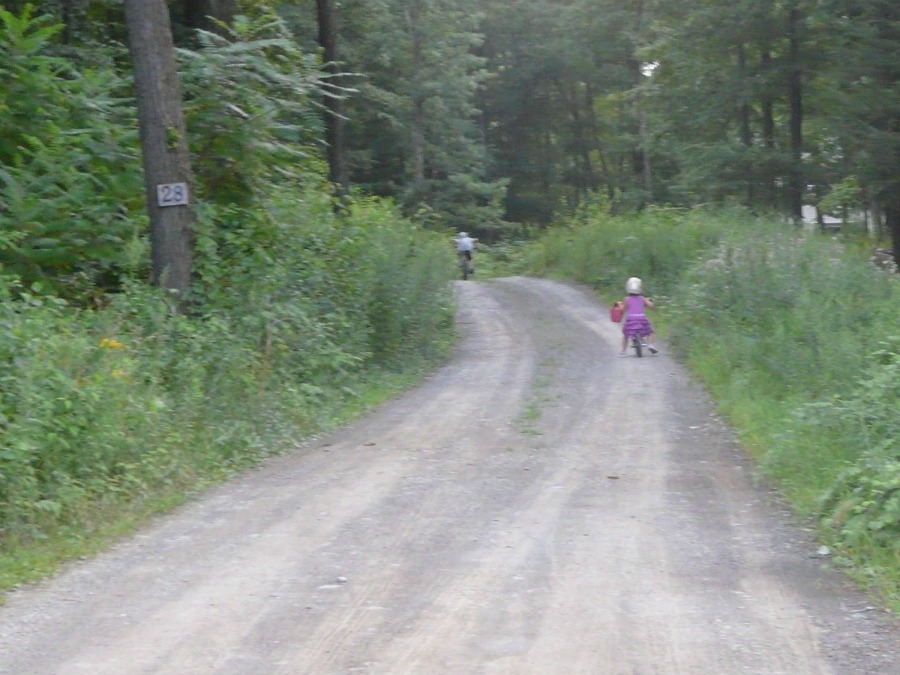
What if each parent were issued a ration book of "NO" tickets when a child was born, and could only say "NO" two hundred times? Two hundred times in eighteen years... that's a lot of "no."
But I've seen parents say "no" five times in five minutes, to children in public places who just want to walk, or to be carried, or to touch something, or to see better, or to have a drink of water, or to have mom hold her hand, or to have one of those candy bars she's face to face with, or to stay a little longer, or to leave a little sooner, to ride in the cart or not ride in the cart. No, no, no, no, no, no, no.
Sometimes someone comes to one of the unschooling discussions, not knowing there are other ways, and offers the traditional "You're the boss, just say no" advice. I'm glad it has come to sound harsh and wrong. It shows me how far I've come.
photo by Brie Jontry, of ice melting and refreezing,
gradually sliding off a roof
__















